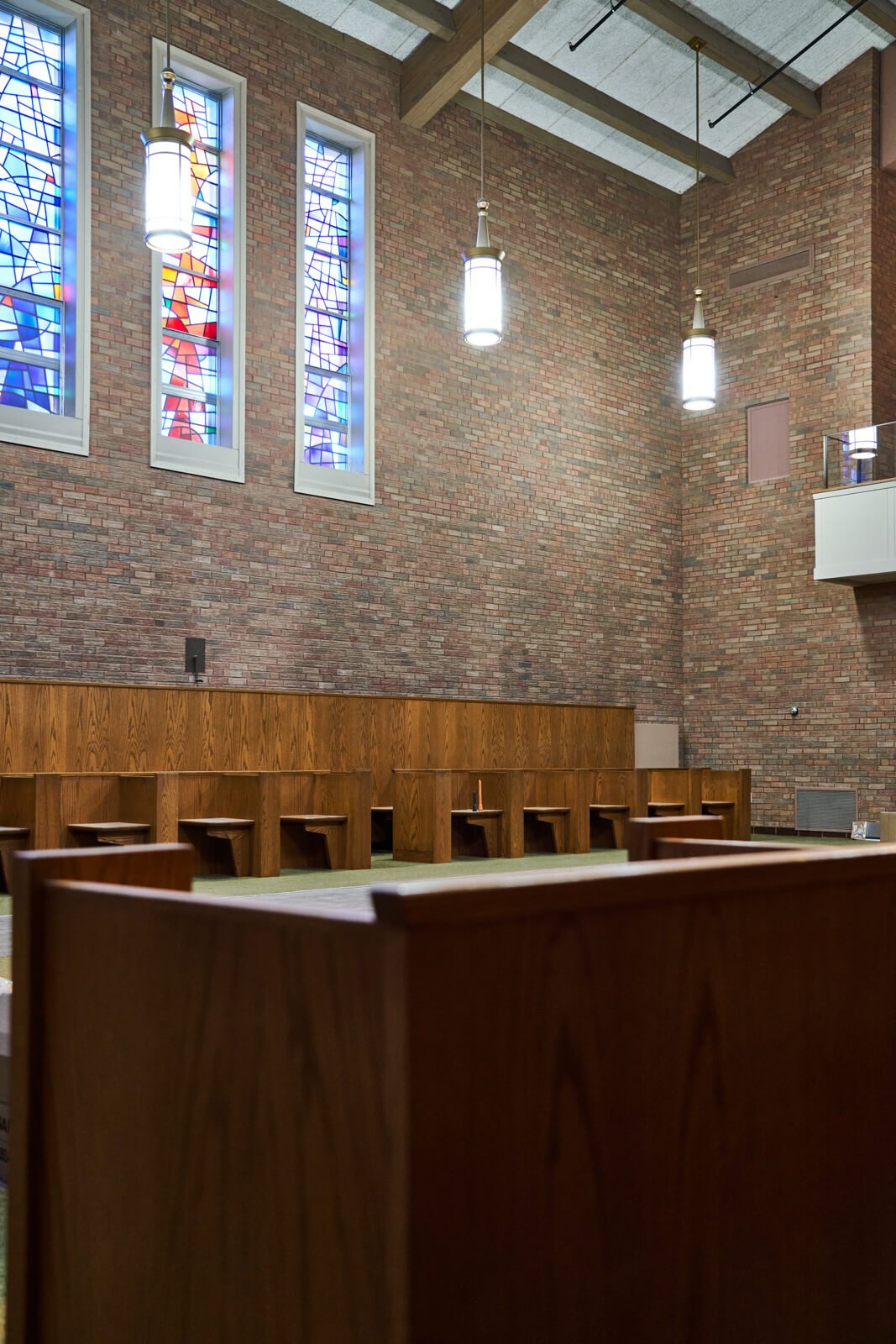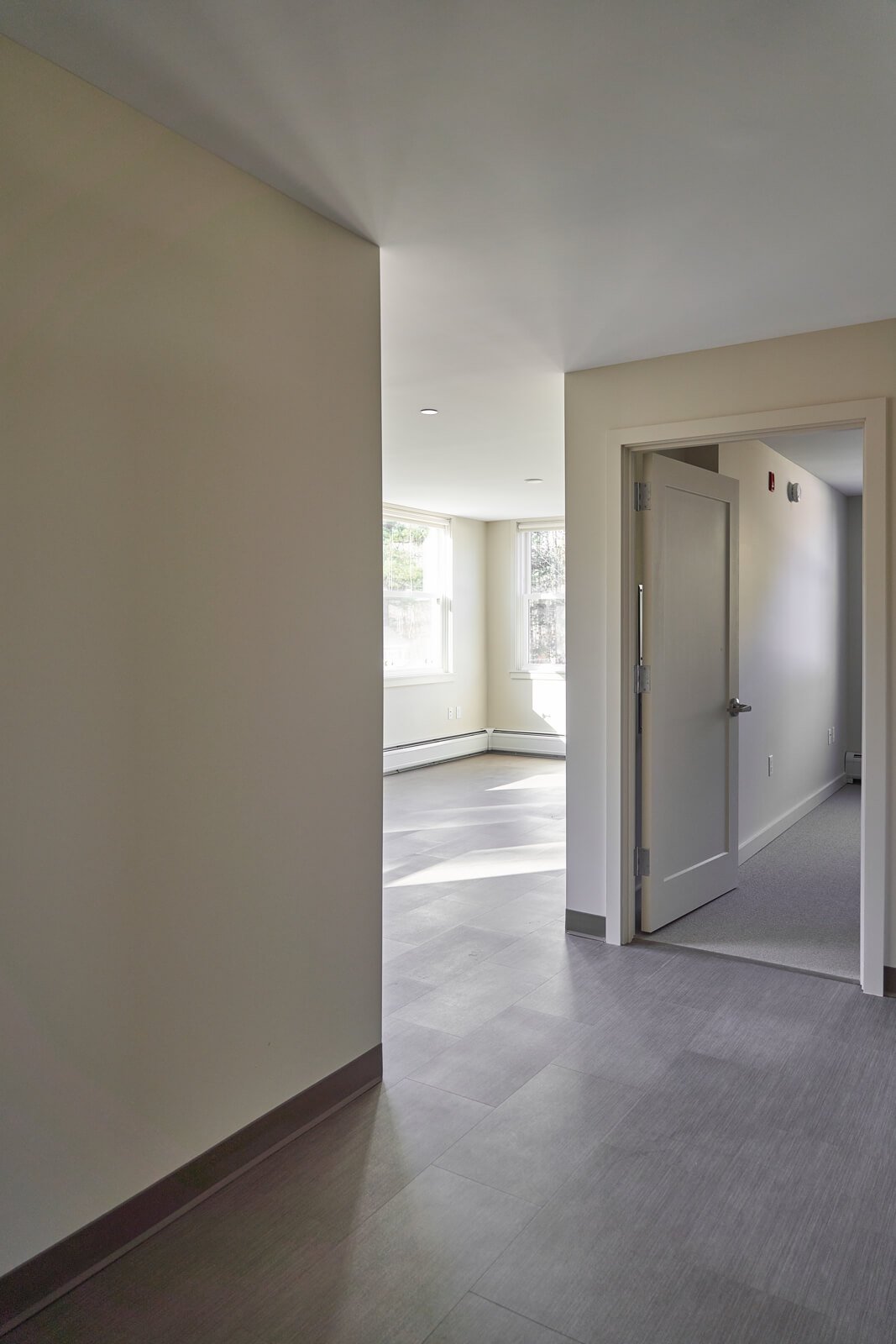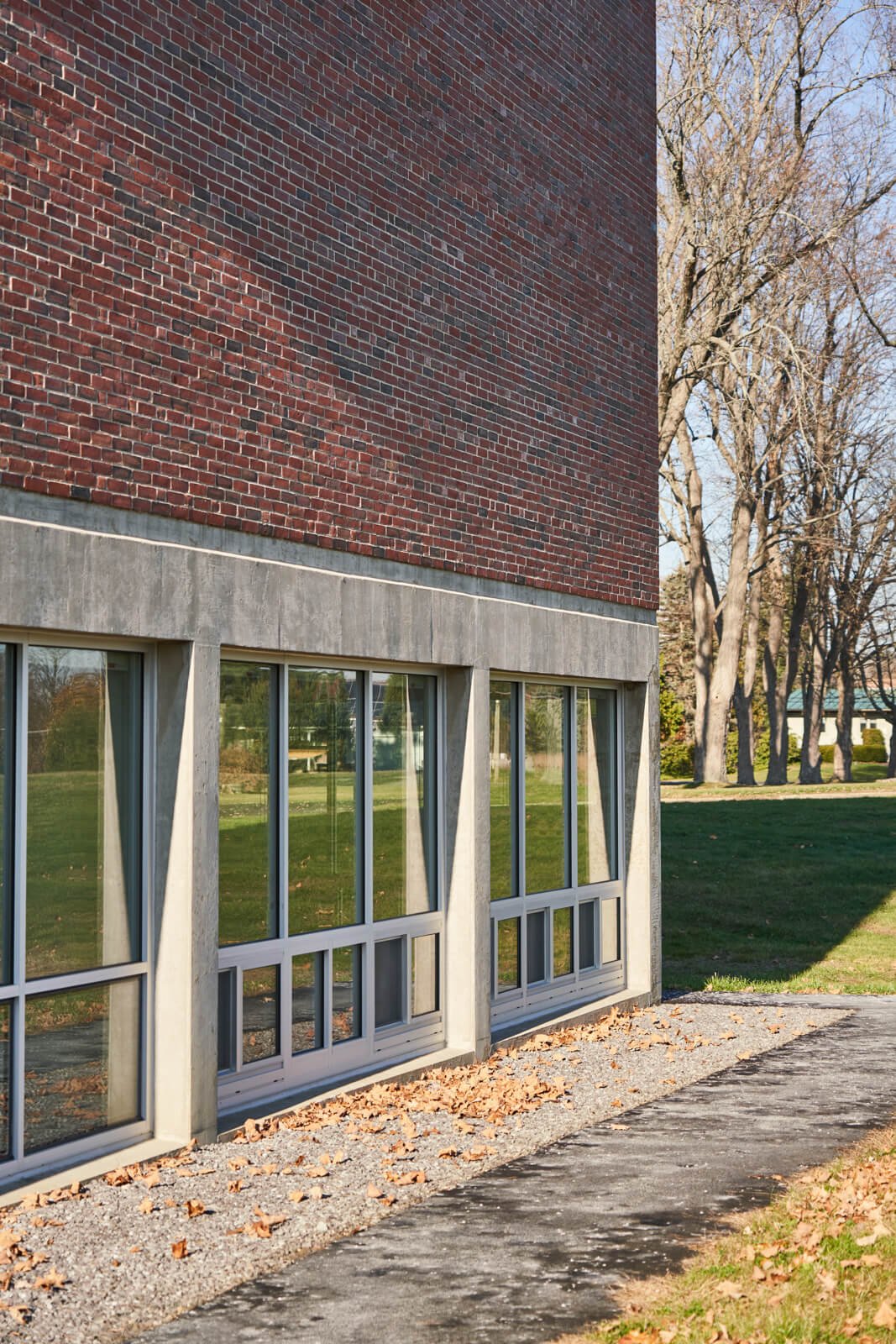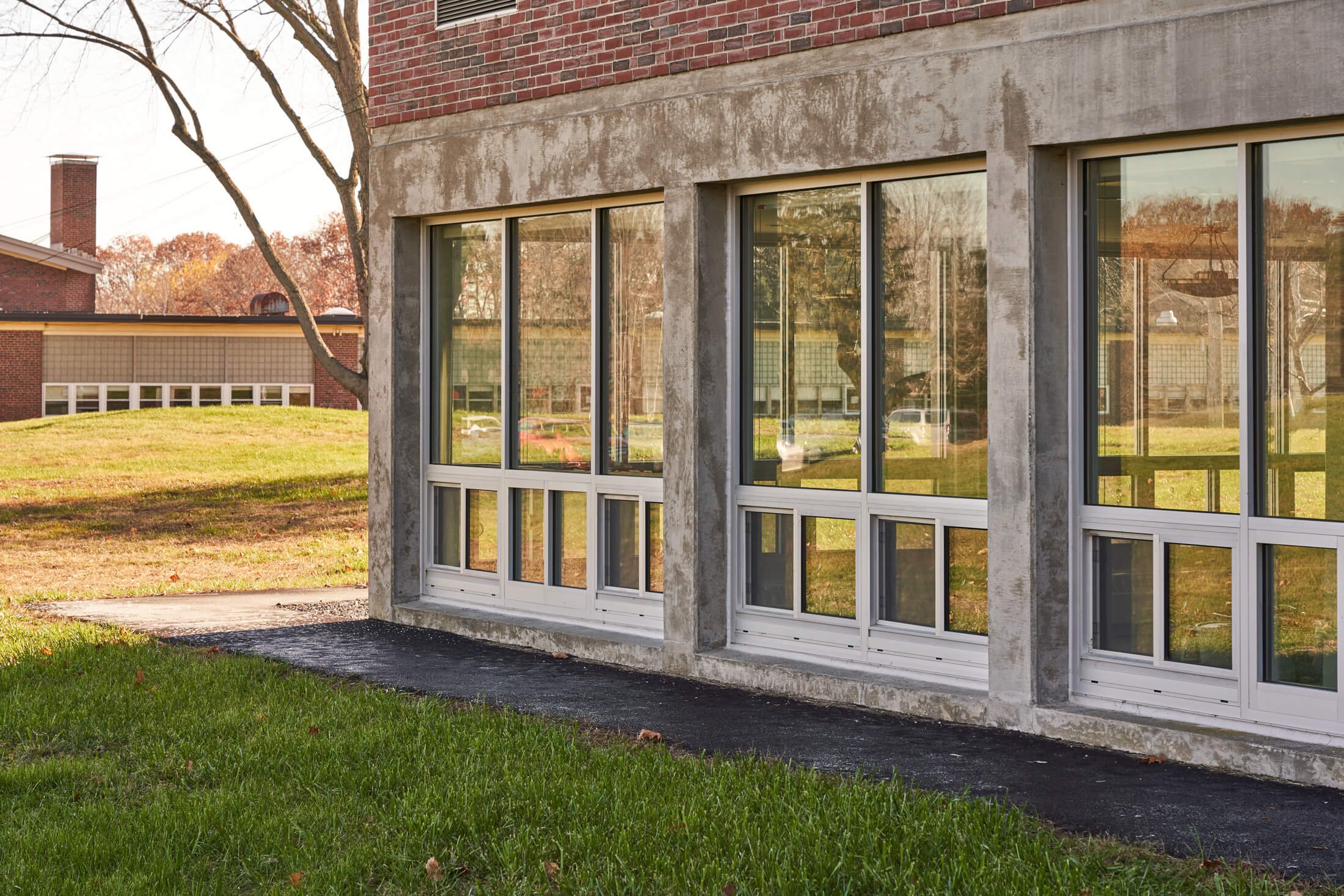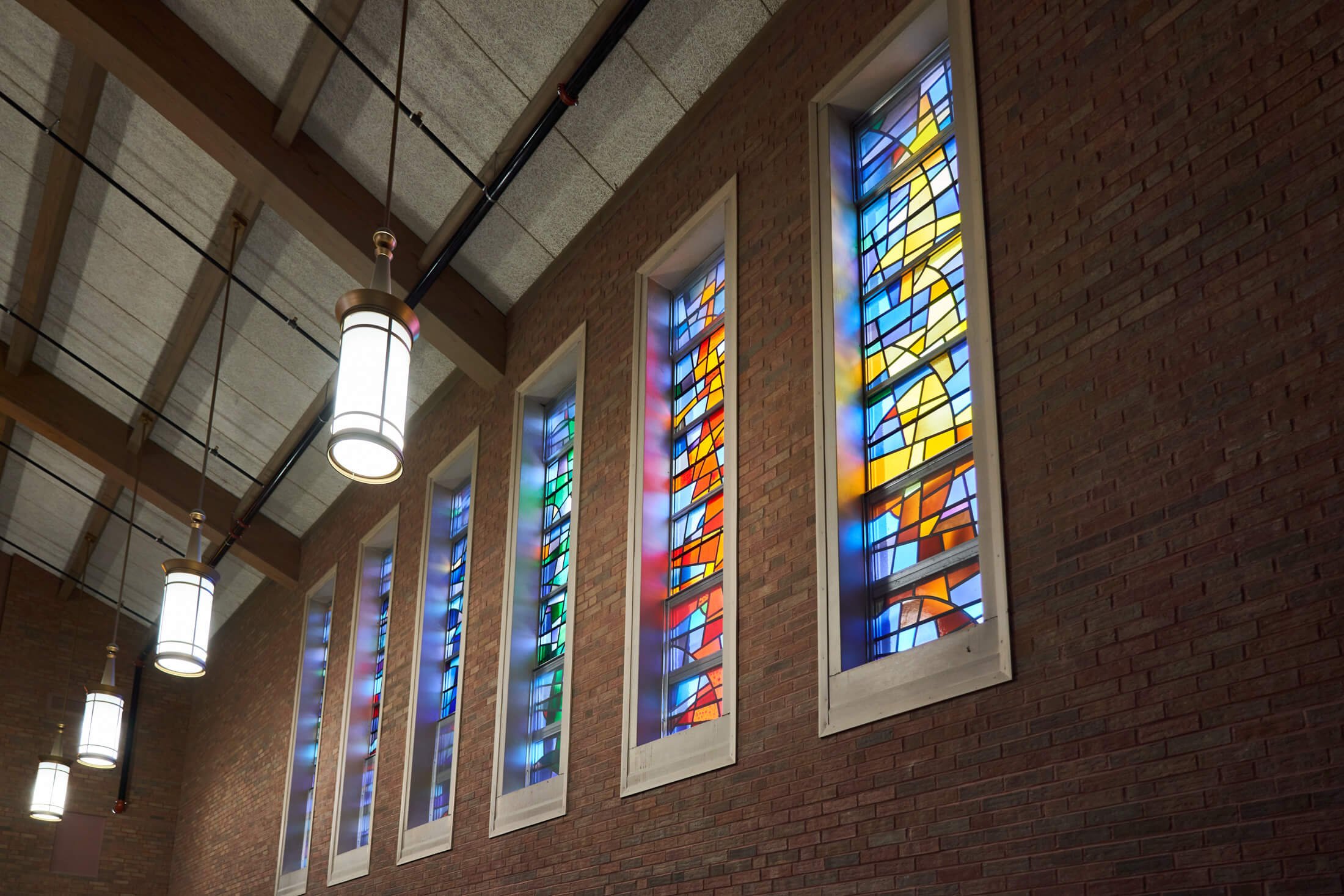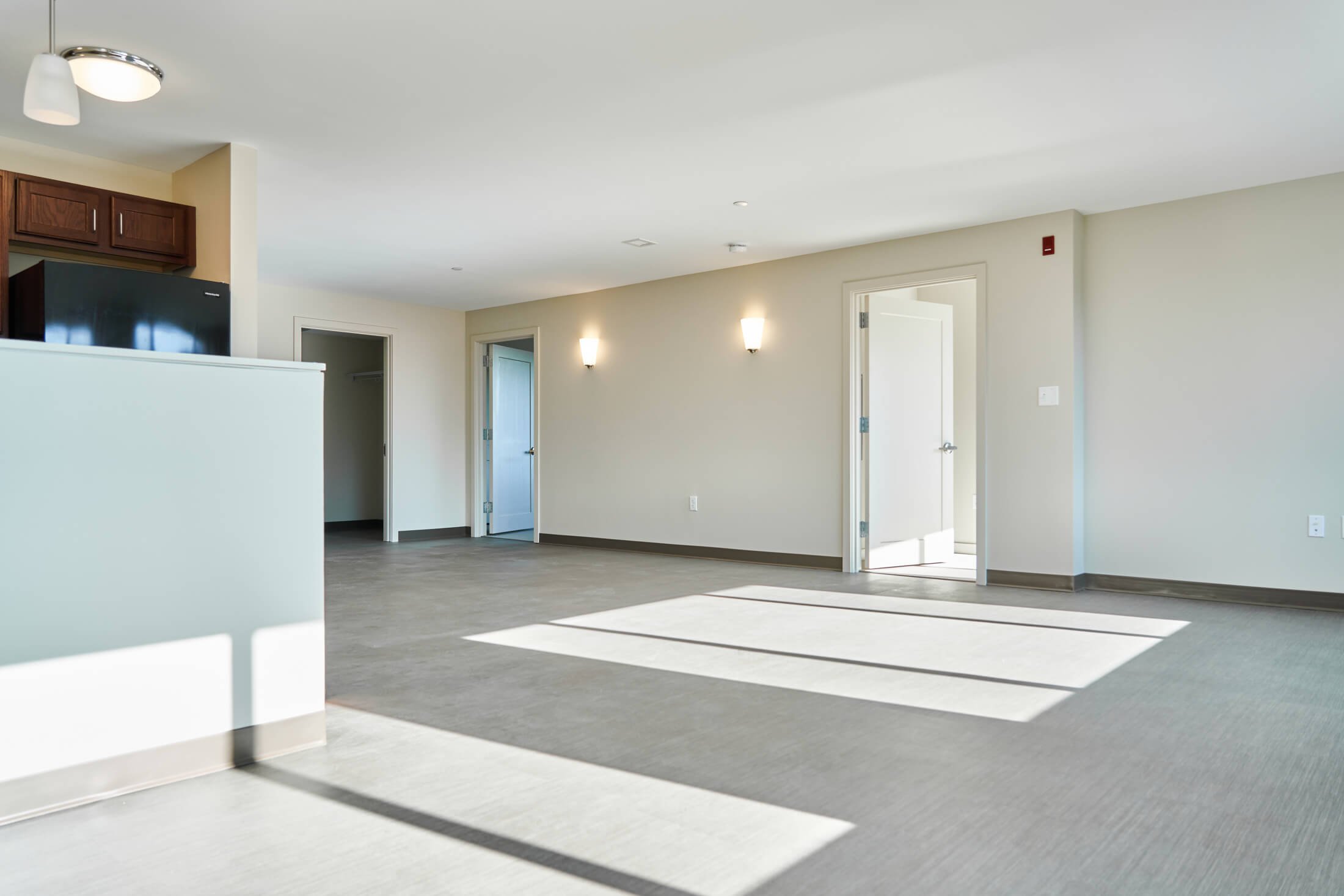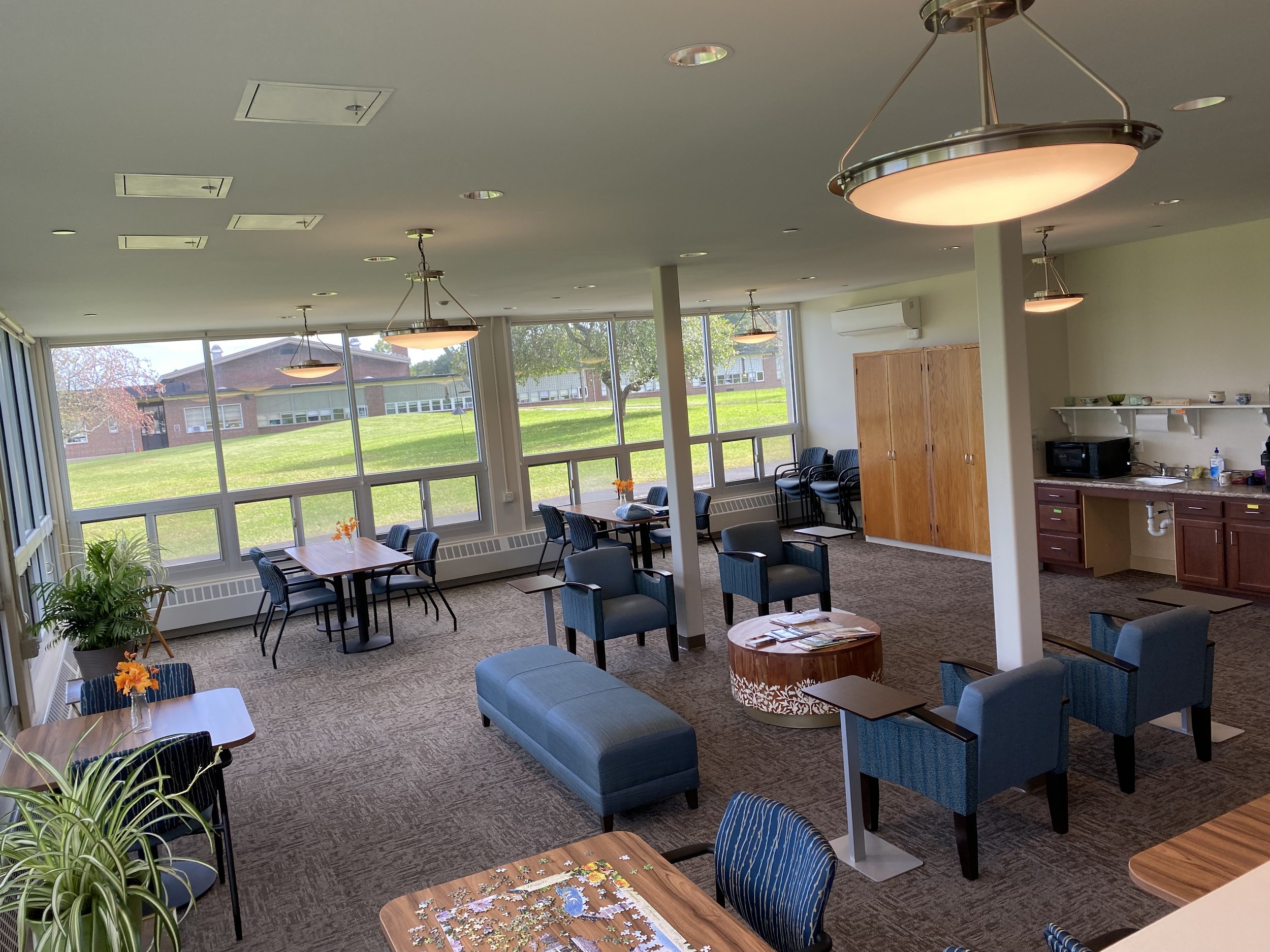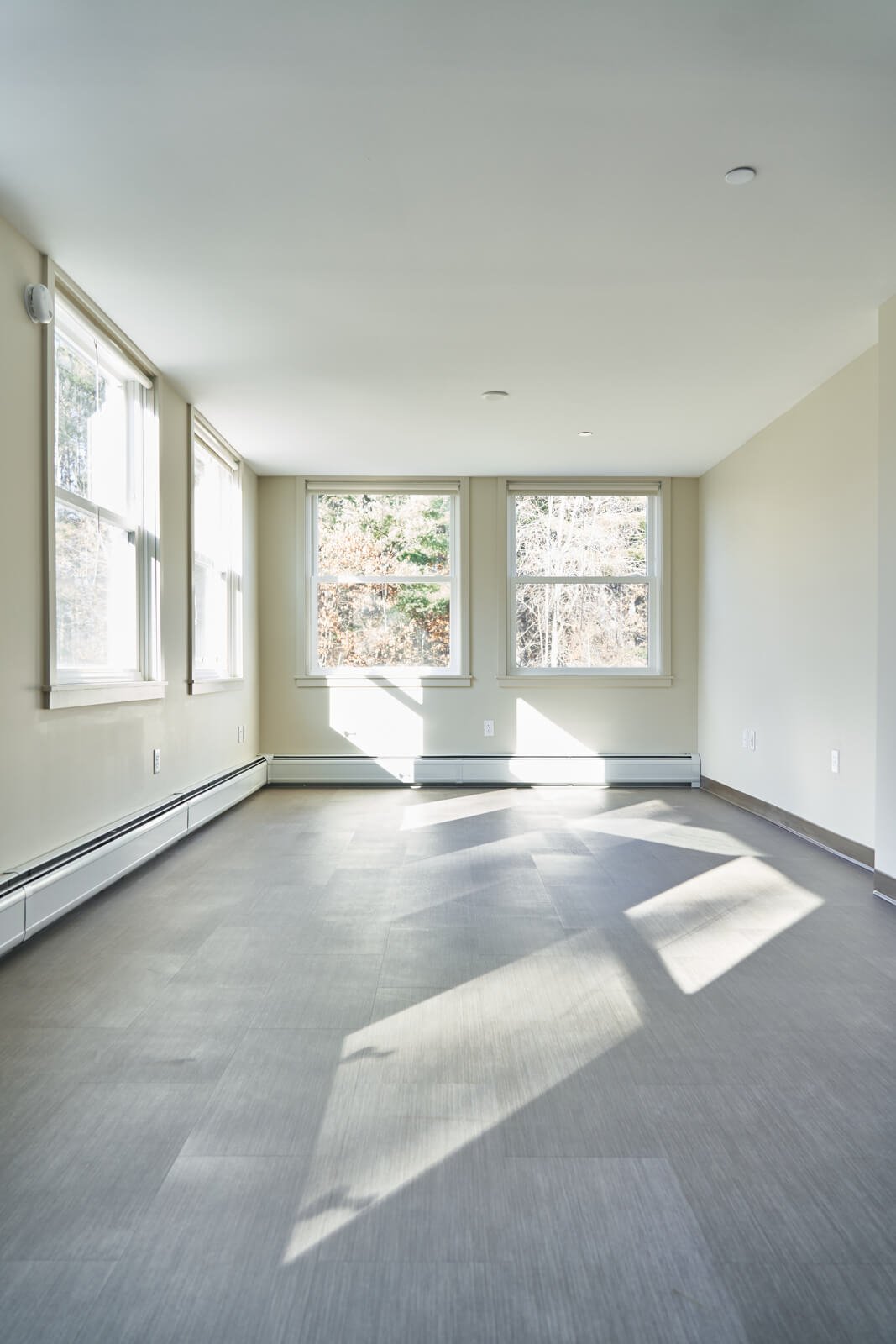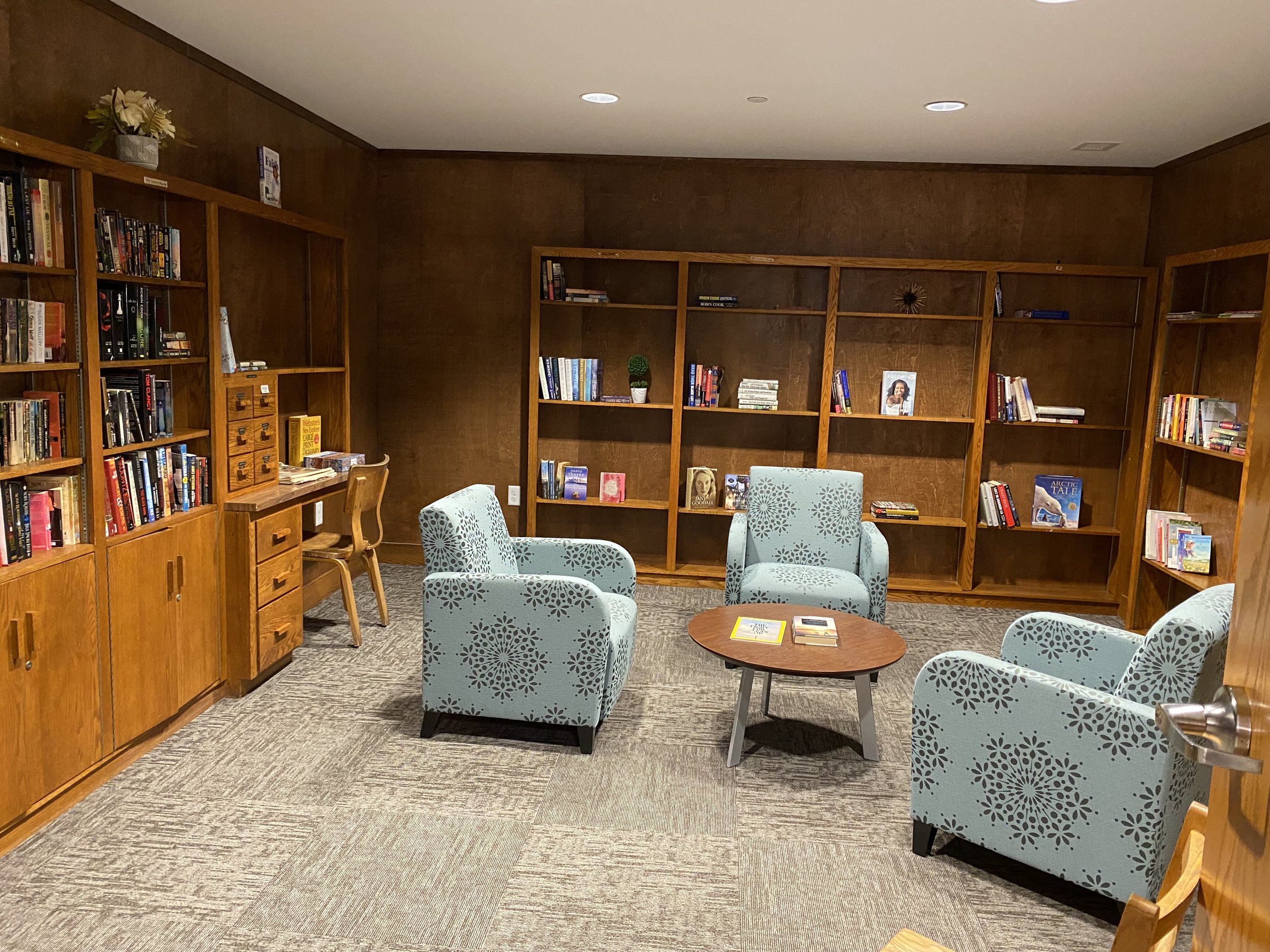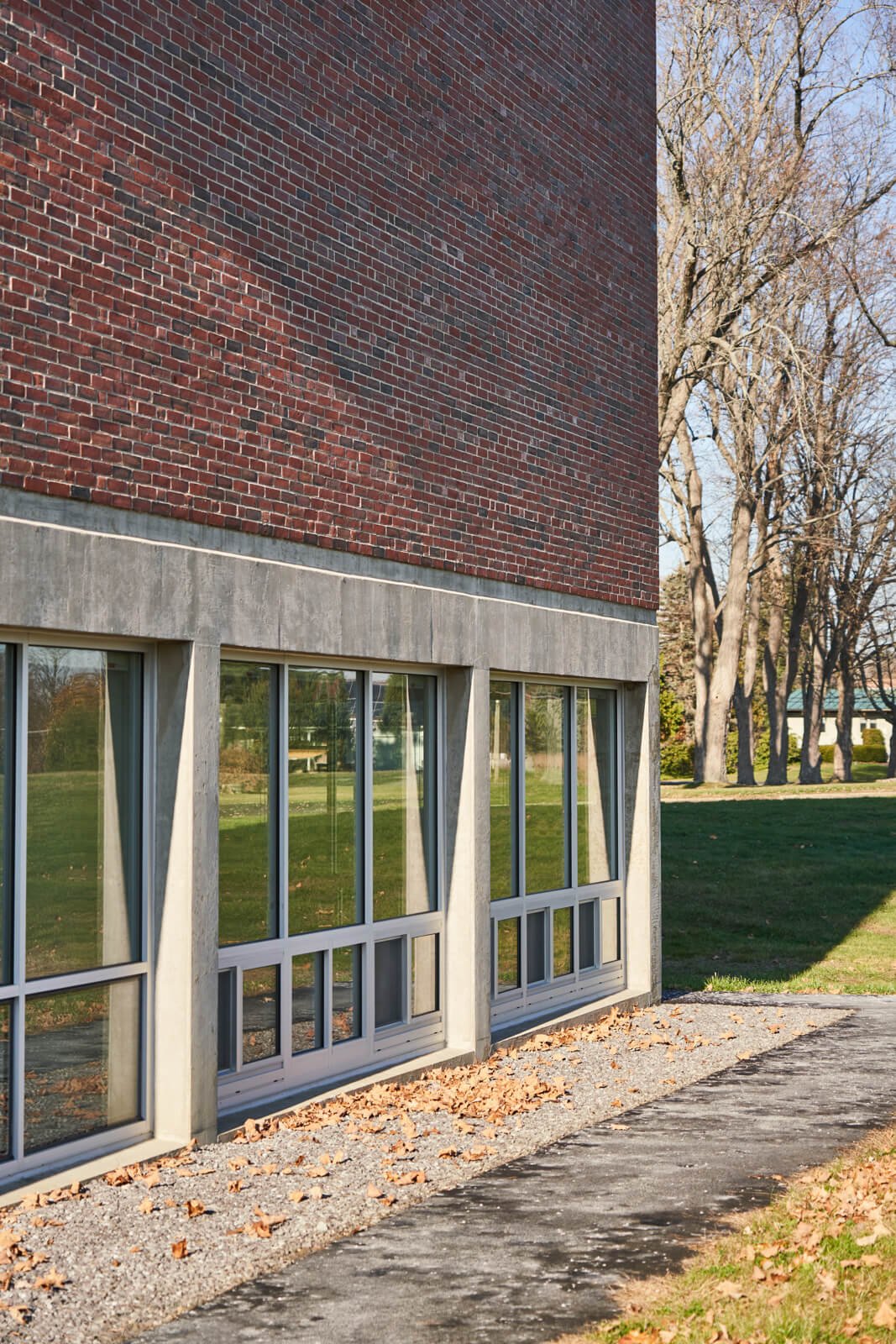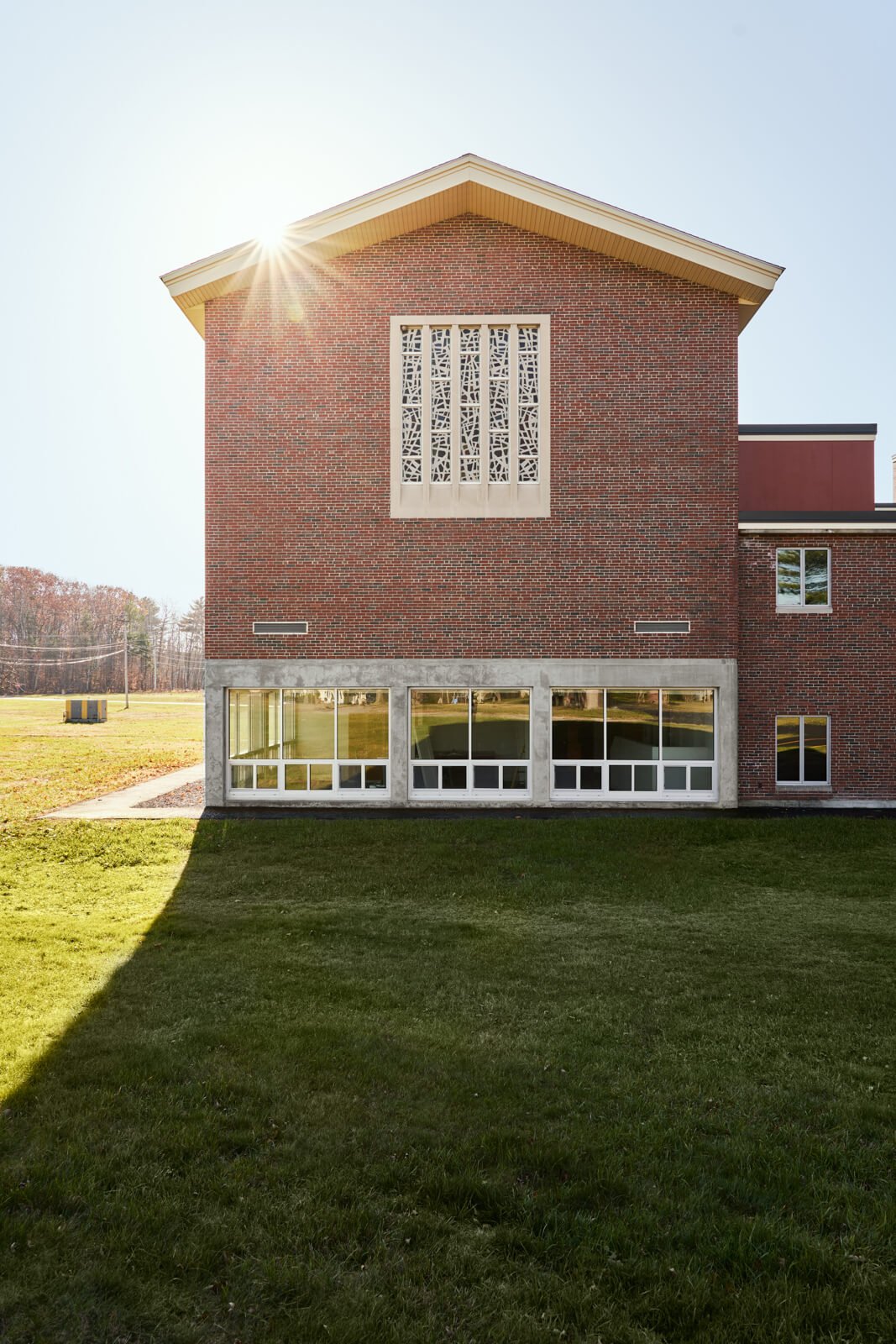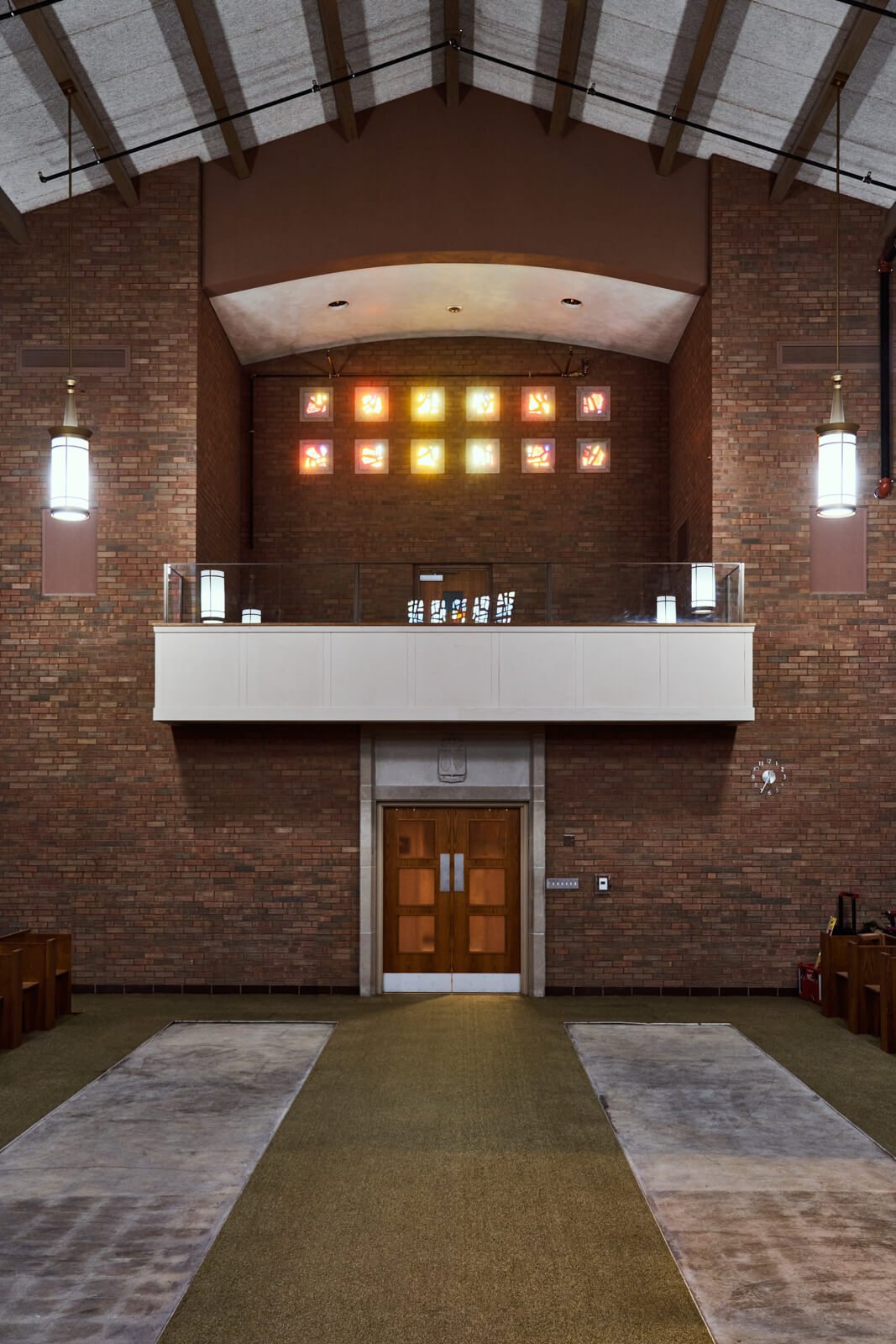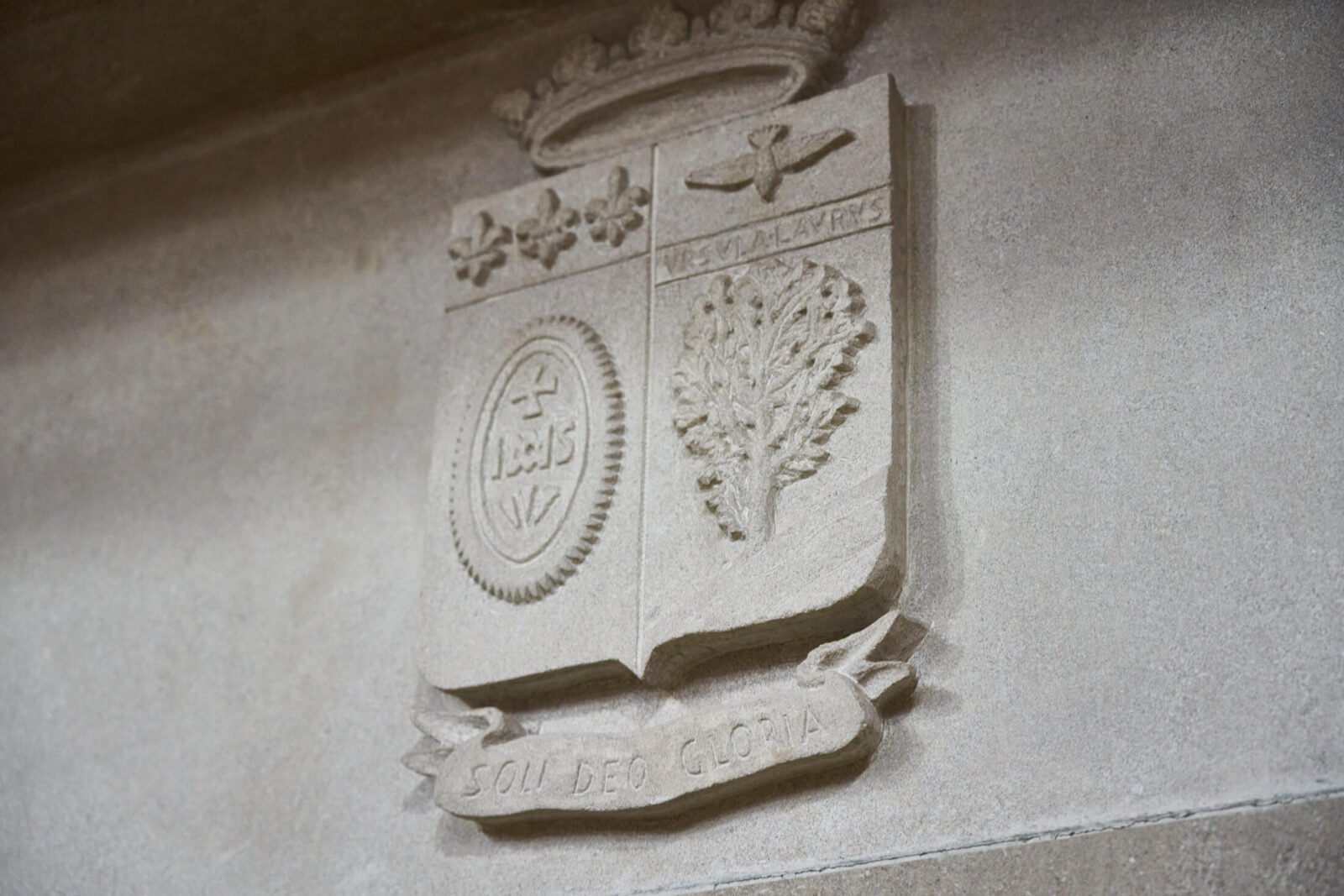When a significant building can no longer serve its intended purpose, one of the greatest challenges is finding a new use that both respects its past and satisfies a need in the community. An empty convent at the Mt. Merici Academy, a place central to the educational, residential, and spiritual legacy of the Ursuline Sisters presented this very challenge.
Six Sisters came from Quebec to Waterville in 1888 at the request of Reverend Narcisse Charland, pastor of the St. Francis de Sales church. Their mission was to educate the children of the French-Canadian mill workers who were moving to the city after the construction of the Lockwood Mills. The first school was built in 1888 and a convent of the order was built in 1891, on a lot adjoining the St. Francis de Salle church in downtown Waterville. The Sisters purchased a 100-acre property outside the downtown in 1911 to establish a larger convent and boarding school for girls. In 1957, a new school building was built on the site and in 1967 a new convent followed. The old and new buildings of Mt. Merici Academy served as a Catholic school for girls from 1912 until 1967, when it became a coeducational day school. The convents served as the principal residence for the Ursuline Sisters stationed in the Diocese of Portland from 1912 to 2005. By then, construction was completed on the nearby Ursuline Care Center, to serve as a retirement home for the few remaining Sisters.
Relocation left the convent vacant, mothballed, and without a use for over fifteen years. Because of its original design, the building was primarily comprised of very small sleeping rooms along the long corridors of the convent. This left potential reuses difficult to identify. There was also the question of how the architecturally significant chapel would be utilized. Patience and faith in finding the right fit paid off.
Looking to address the housing shortage in the community, the Waterville Housing Authority turned to the empty convent. The building once intended to house the Ursuline Sisters could be put back into service to provide much needed affordable housing for Waterville’s senior citizens. The reuse proposal echoed the ethos of its original owners the Ursuline Sisters, whose motto, established by founder St. Angela Merici, is Serviam or “I will serve”. The project received critical support from local leaders, including former Mayor Nelson Megna and now former Mayor Nicholas Isgro, and officially proceeded with approval by the Housing Authority’s Board of Directors.
The reuse project successfully paired State and Federal Rehabilitation Tax Credits with Low Income Housing Tax Credits, which require the building also be brought up to MaineHousing energy efficiency standards. Historic Rehabilitation Tax Credits were available with the nomination of the larger Mt. Merici Historic District to the National Register of Historic Places. The district includes the convent, school, and cemetery. Critical financing was made possible by Camden National Bank and Federal Home Loan Bank of Boston.
Modern improvements to the convent included new windows and new finishes in the apartment units and hallways. The project team, led by Portland-based Archetype Architects and Herbert Construction, combined the existing Sisters' sleeping cells to create 28 independent apartment units. The addition of an elevator and restrooms permitted public use of the original chapel. Although the chapel was deconsecrated as part of the project, the vaulted wood ceiling and stained-glass windows still provide residents a place for quiet reflection. The space originally used as a cafeteria for the neighboring Mt. Merici Academy was converted into a community room and the Sisters’ library relocated for residents.
The Waterville Housing Authority and its partners re-envisioned a uniquely configured floor plan to provide 28 units of affordable housing, while preserving the architectural elements of the 1967 modernist convent. As buildings and sites from the 1960s and 1970s become eligible for historic designation and preservation incentives, we need to continue to rethink and reimagine what places are important and meaningful to Mainers. Certainly, the Ursuline Sisters’ tradition and culture of service, through both acts and the creation of spaces, is worthy.


